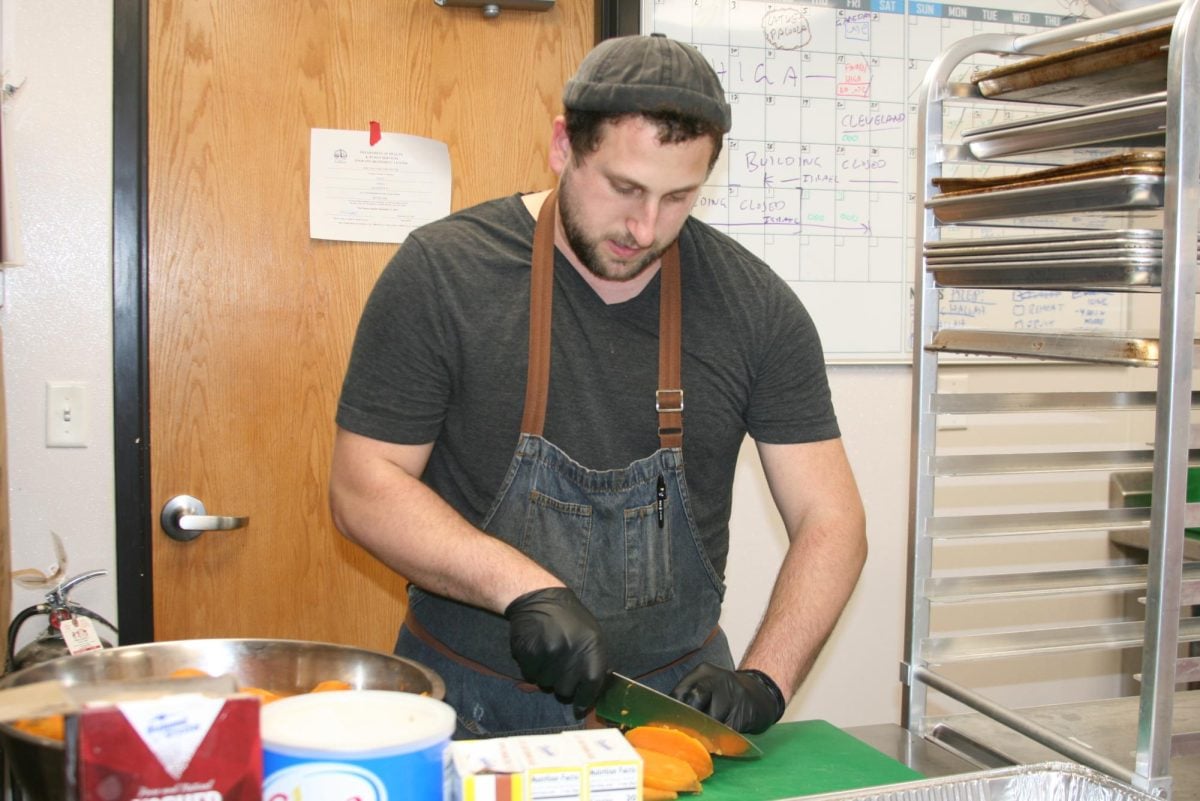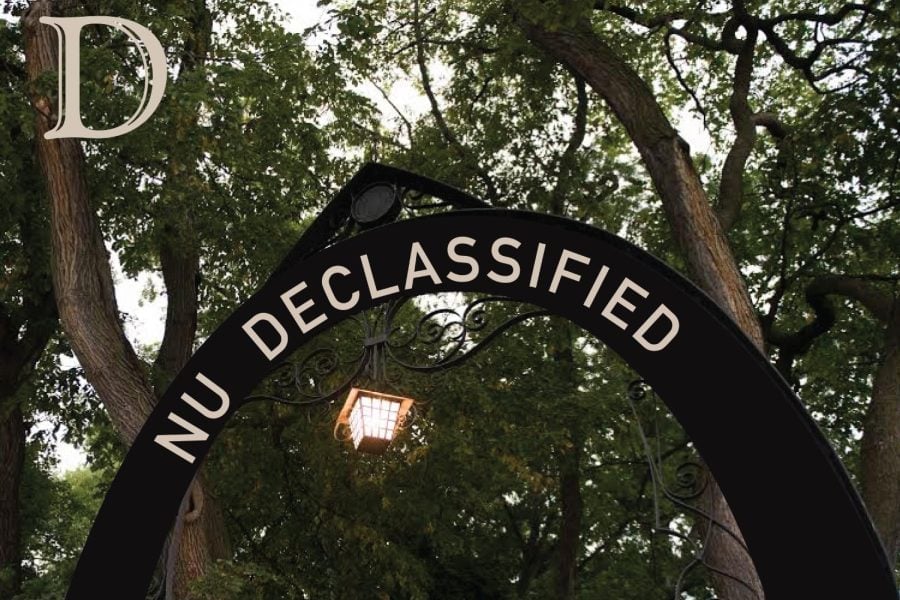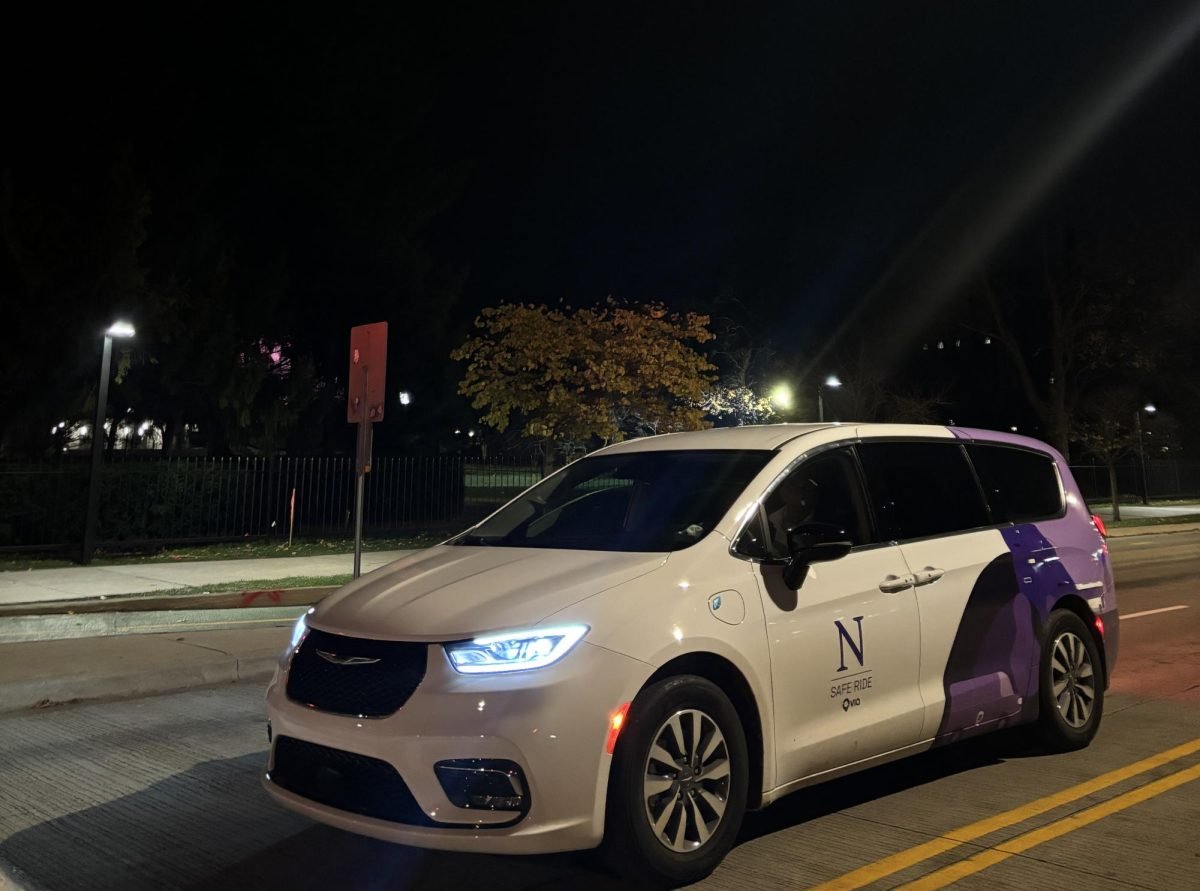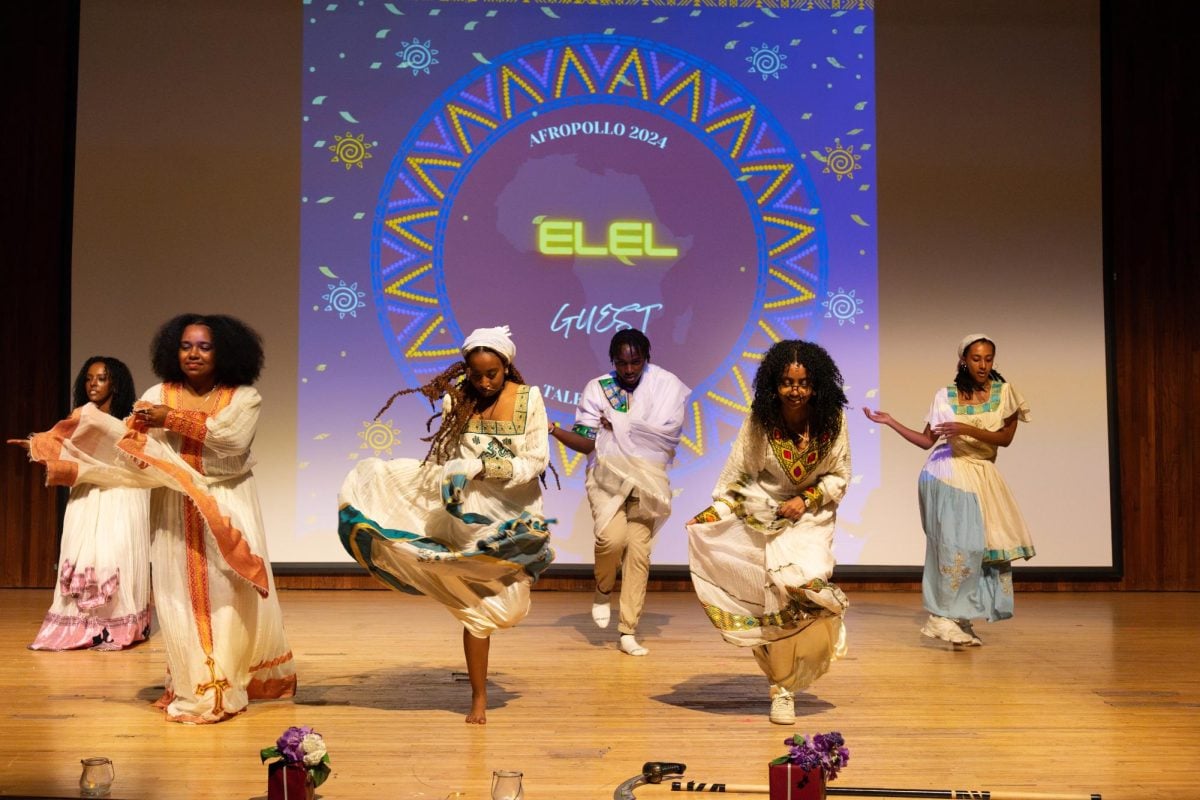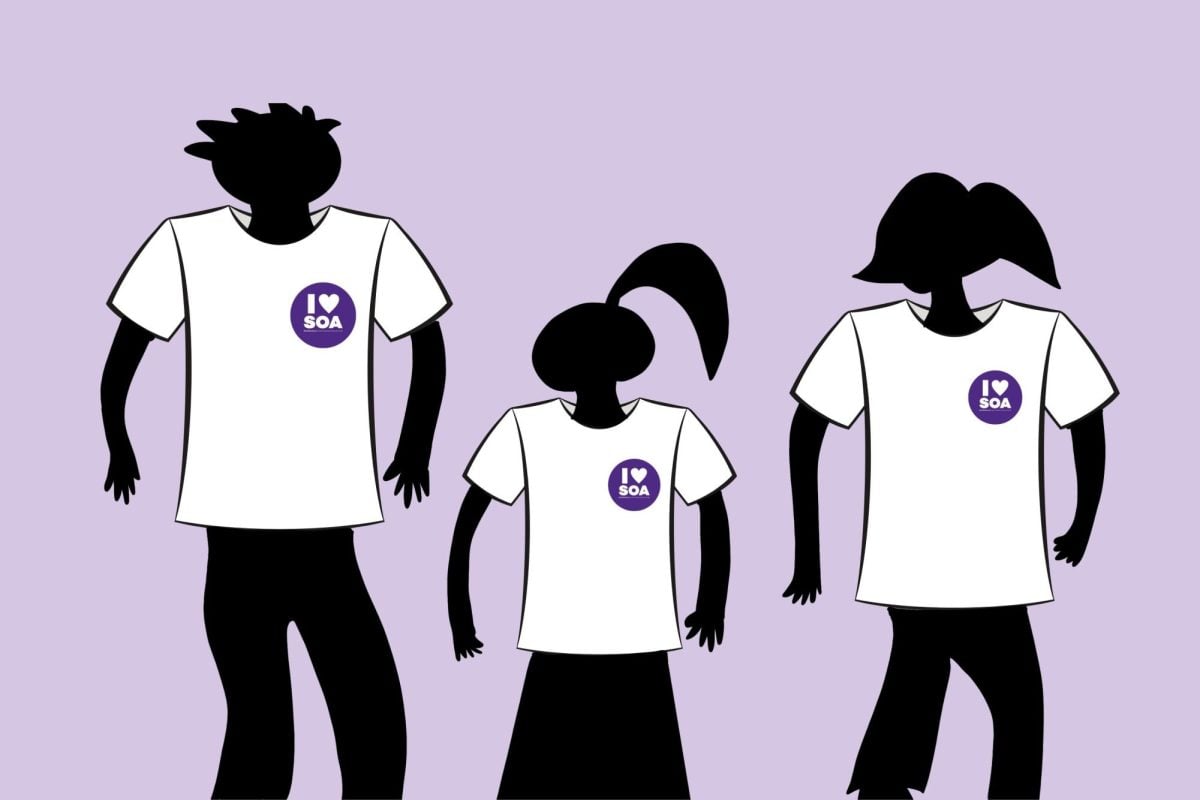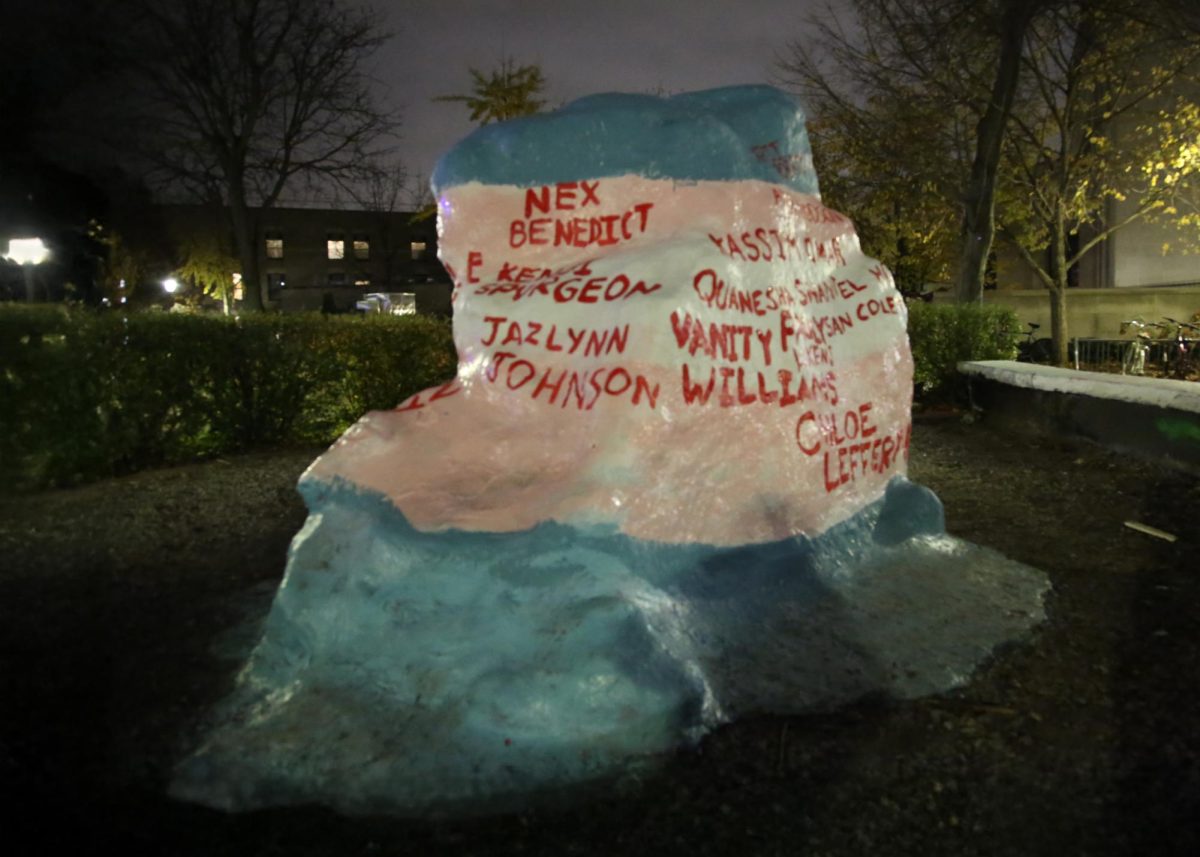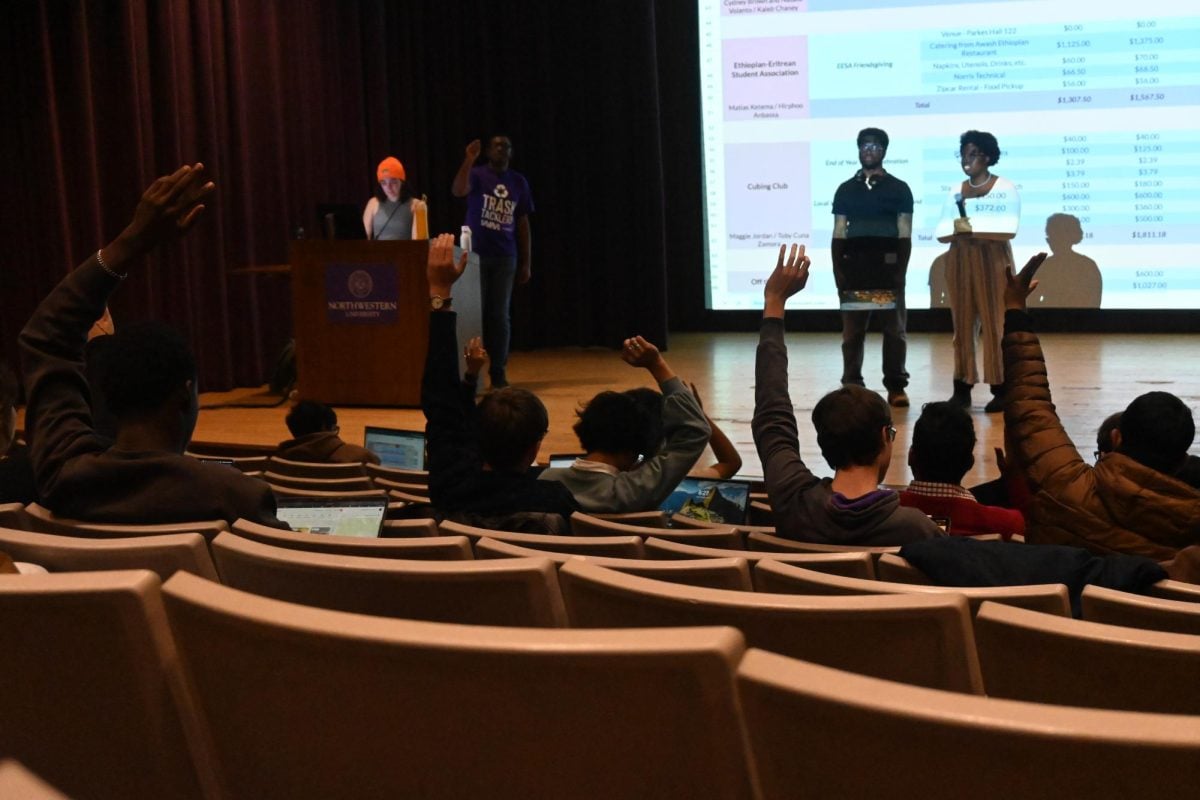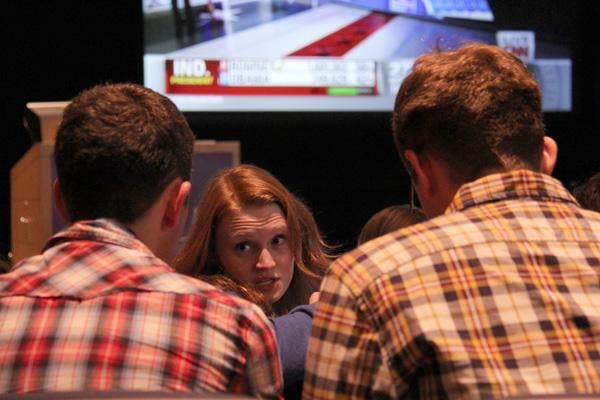
In the hours leading up to President Barack Obama’s election to a second term, hundreds of Northwestern students and staff members converged in watch parties across campus, awaiting the results of Tuesday night’s close presidential race.
The election night gatherings, held in the McCormick Tribune Center, Kellogg School of Management and the Black House were filled with boxes of pizza, friendly conversations and TV screens displaying live media coverage of results and projections.
In the McCormick Tribune Center Forum, about 70 students and faculty members intently followed media coverage on the projector screen, smartphones, computers, iPads and the televisions in the lobby. Gatherings in Black House and Kellogg took on a more social atmosphere, with conversations nearly drowning out the audio coverage.
Despite Obama’s win Tuesday night, this year’s presidential campaign contrasted with the inspirational rhetoric that characterized the president’s historical victory in 2008, said political science Prof. Andrew Roberts, who helped organize the McCormick Tribune Center party with the Northwestern Political Union.
Many of Roberts’ students traveled downtown for Obama’s election night rally in Grant Park four years ago, and he said he has heard of fewer students making the trip to McCormick Place this time around.
He also said the closer nature of this year’s race, as well as much discussion surrounding the country’s continually struggling economy, would result in a sense of relief among Obama supporter rather than euphoria if he won.
“Last time there was excitement and enthusiasm,” Roberts said. “This time it seems people are a little more nervous.”
Although Roberts said the last election was “more exciting,” about the same number of students attended the department’s rally, which drew an estimated 70 people during the course of the night.
Students said they were interested in the election because of numerous issues relating to their lives, including college loans, health care and access to contraception.
“As a woman, I would rather not have the government control my body,” said Communication senior Kelley Schneider.
Although the Political Union and students from Kellogg’s Public Policy Club have held election night events in the past, this is the first year that Delta Sigma Theta held events during a presidential election cycle.
The sorority also held watch parties in the Black House for the three presidential debates, some of which were so crowded that students sat “knees to chest,” said Medill senior Ryan Arrendell, arts and letters programming co-chair for the chapter.
Arrendell said Delta Sigma Theta decided to hold election-related events as part of the chapter’s commitment to increasing political awareness and engagement among minority students. She said the gatherings created a “safe and open environment” for NU’s minority community.
“It’s wanting to be together as a community to witness history,” Arrendell said.
The party at Kellogg featured five TV screens playing CNN and C-SPAN while stacks of pizza boxes covered the first floor lounge’s counters.
The graduate students’ event was slightly different from previous years, with Kellogg Dean Sally Blount hosting an election night reception directly before the party. A “presidential quiz” available at the party gave students the opportunity to win a lunch with the dean. Kellogg student John Felton said the dean’s participation represents the business school’s decision to emphasize public policy issues more in curriculum.
The Kellogg party even attracted a number of international students, who were exposed for the first time to American presidential politics, said Daniel Dip, an officer in Kellogg’s Public Policy Club.
“Just because international students can’t vote doesn’t mean they don’t have a stake in (the election),” said Dip, who is from Brazil.
Rachel Vrabec, director of development for the Political Union, said hosting events and gatherings during election cycles helps to promote political understanding and engagement among college-aged voters. It is important for students to gain an understanding of the political processes early on, she added.
“It’s kind of a routine,” the Weinberg senior said. “Getting involved in the habit of being civically engaged.”
Ally Mutnick contributed reporting.



